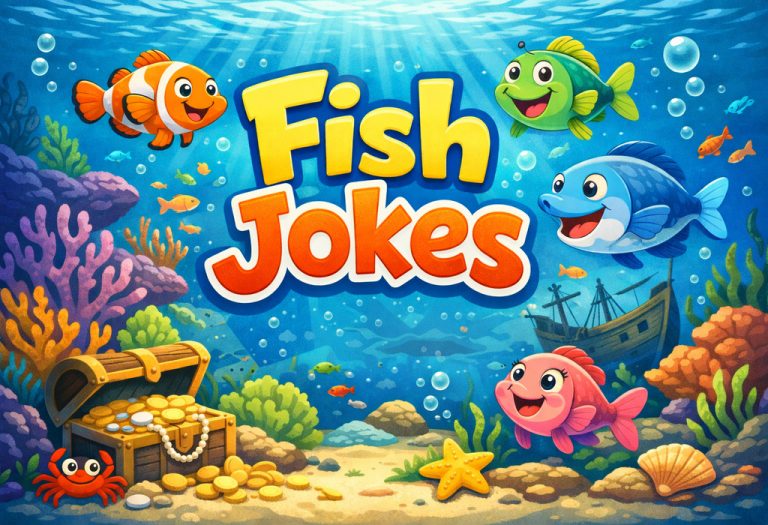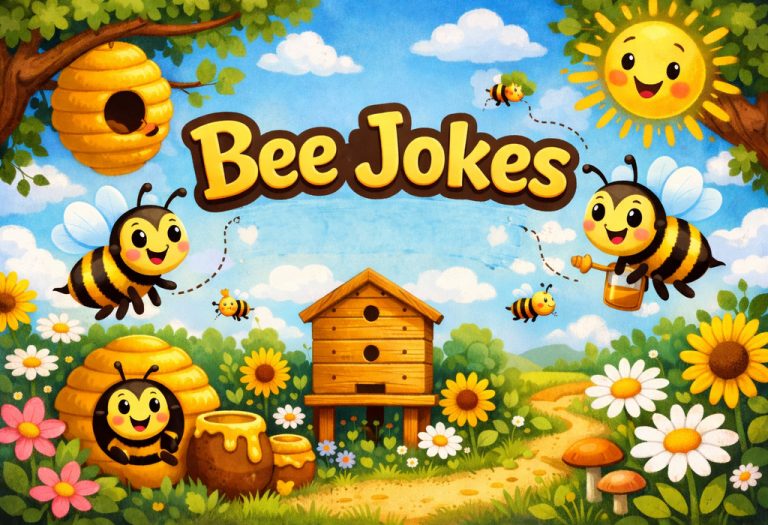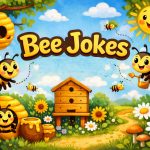25+ Best Fun & Development Boosting Activities for 18 Months Old
At 18 months old, your little one is blossoming with curiosity and energy, eager to learn and explore the world around them. This stage plays a vital role in their cognitive, social, and motor skill development. As a parent or caregiver, finding the right balance of fun and learning in educational activities is the key for supporting their growth. From sensory play to outdoor adventures, the activities for 18-month-old toddlers not only keep them entertained but also encourage their young minds to develop in meaningful ways. In this post, we’ll present you with a range of engaging activities that are perfectly suited for your 18-month-old toddlers, offering both enjoyment and developmental benefits. Let’s explore the world through your toddler’s eyes and discover how simple, everyday play can make a big difference in their early learning journey.
What Development Should You Expect in Your 18-Month-Old Baby?
At 18 months, your baby is making significant strides in their development, both physically and mentally. This period is marked by newly found independence, enhanced motor skills, and a growing curiosity about the surroundings.
1. Motor Skills and Coordination
By 18 months, your toddler is likely walking more confidently and may even start running, climbing, and exploring their environment with greater ease. Their fine motor skills are also improving, allowing them to grasp small objects, stack blocks, and use utensils with more precision.
2. Language Development
Language skills are rapidly expanding at this age. Your child might be saying a few simple words and beginning to understand and follow basic instructions. They may also start to identify familiar objects and people by name, demonstrating an increasing understanding of the world around them.
3. Social and Emotional Growth
Your toddler is starting to express a wider range of emotions, from joy and excitement to frustration and determination. They are also beginning to engage in parallel play, where they play alongside other children, and may show signs of empathy, like comforting a friend in distress.
4. Cognitive Development
At this age, your child’s cognitive abilities are growing as they start to solve simple problems and engage in pretend play. They are becoming more aware of cause and effect, and their curiosity leads them to explore and experiment with their surroundings.
Development Activities for 18-Month-Old
Engaging your 18-month-old in developmental activities helps with their overall growth. These activities not only provide entertainment but also outstandingly contribute to the physical, mental, and social development of 18-month-old babies. Below are some fun and effective activities that you can easily set up at home.
1. Sensory Play With Rice
Things You Will Need:
- Uncooked rice
- A large container
- Small toys, spoons, and cups
How to Do It:
- Pour the rice into the large container.
- Bury small toys in the rice for your child to find.
- Give your toddler spoons and cups to scoop and pour the rice.
Development:
This activity enhances your toddler’s fine motor skills and hand-eye coordination while also stimulating their senses. It also encourages problem-solving as they search for hidden toys.
2. Water Play
Things You Will Need:
- A shallow basin or bathtub
- Cups, spoons, and small waterproof toys
How to Do It:
- Fill the basin or bathtub with a small amount of water.
- Let your toddler play with cups, spoons, and toys in the water.
- Encourage them to scoop, pour, and splash.
Development:
Water play promotes sensory exploration and helps develop fine motor skills. It also introduces early concepts of volume and cause-and-effect relationships.
3. Building With Blocks
Things You Will Need:
- A set of large, soft blocks
How to Do It:
- Show your toddler how to stack blocks to make simple towers.
- Encourage them to build their own structures.
- Knock the blocks down together and rebuild.
Development:
Building with blocks supports spatial awareness, problem-solving, and fine motor development. It also enhances creativity and introduces basic concepts of balance and gravity.
4. Simple Puzzles
Things You Will Need:
- Age-appropriate wooden or foam puzzles
How to Do It:
- Select a puzzle with large, easy-to-hold pieces.
- Demonstrate how to place the pieces in the correct spots.
- Let your toddler try on their own, offering guidance as needed.
Development:
Puzzles are excellent for developing cognitive skills, including problem-solving and hand-eye coordination. They also help with understanding shapes and spatial relationships.
5. Music and Dance
Things You Will Need:
- A music player or instruments (tambourine, maracas, etc.)
How to Do It:
- Play your toddler’s favourite songs or rhythmic tunes.
- Encourage them to dance, clap, and move to the music.
- Offer simple instruments for them to play along.
Development:
Music and dance activities play a vital role in enhancing physical development, coordination, and rhythm. They also cultivate self-expression and promote social interaction, particularly when shared with others.
6. Storytime
Things You Will Need:
- Picture books with simple, colourful illustrations
How to Do It:
- Choose a short storybook with engaging pictures.
- Read aloud to your toddler, pointing to and naming objects in the pictures.
- Encourage them to turn the pages and interact with the story.
Development:
Storytime enhances language skills, listening abilities, and imagination. It also strengthens the bond between you and your child, fostering emotional and social development.
7. Outdoor Exploration
Things You Will Need:
- A safe outdoor space (garden, park)
- Comfortable clothing and shoes
How to Do It:
- Take your toddler outside to explore the natural environment.
- Let them walk, run, and explore different textures (grass, sand, leaves).
- Point out and name different objects like flowers, birds, and trees.
Development:
Outdoor play is crucial for physical development, offering opportunities for gross motor skills to flourish. It also stimulates curiosity and environmental awareness, fostering cognitive growth.
8. Drawing With Crayons
Things You Will Need:
- Non-toxic crayons
- Large sheets of paper or a drawing board
How to Do It:
- Give your toddler crayons and a large piece of paper.
- Encourage them to make marks and scribbles freely.
- Talk to them about the colours they are using and the shapes they create.
Development:
Drawing helps improve fine motor skills, hand-eye coordination, and creativity. It also introduces basic concepts of colour and shapes, contributing to cognitive development.
9. Stacking Cups
Things You Will Need:
- A set of stacking cups or similar objects
How to Do It:
- Show your toddler how to stack the cups in size order.
- Encourage them to try stacking the cups themselves.
- Experiment with different stacking arrangements.
Development:
This activity develops fine motor skills, hand-eye coordination, and problem-solving abilities. It also enhances spatial awareness and understanding of size relationships.
10. Pretend Play With Dolls or Stuffed Animals
Things You Will Need:
- Dolls, stuffed animals, or toy figurines
- Simple props (blankets, toy food, etc.)
How to Do It:
- Set up a small play area with dolls or stuffed animals.
- Encourage your toddler to feed, dress, or tuck in their toys.
- Join in by pretending to play along, enhancing the story.
Development:
Pretend play is vital for social and emotional development. It allows toddlers to explore different roles, practice empathy, and understand the world around them. It also fosters creativity and language skills.
11. Simple Obstacle Course
Things You Will Need:
- Cushions, soft furniture, and other safe objects
How to Do It:
- Arrange cushions and soft objects to create a simple obstacle course.
- Encourage your toddler to crawl, climb, and walk through the course.
- Guide them as they navigate each obstacle, offering praise and encouragement.
Development:
An obstacle course is excellent for developing gross motor skills, balance, and coordination. It also builds confidence as your toddler learns to overcome physical challenges.
Educational and Learning Activities to Do with an 18-Month-Old
At 18 months, your toddler is at a prime age for absorbing new information and developing critical skills. Incorporating educational and learning activities into their daily routine can significantly boost their cognitive and language development. Below are some engaging and effective educational & learning activities for 18-month-old babies that you can easily try at home.
1. Matching Games
Things You Will Need:
- Picture cards or objects in pairs
- A flat surface
How to Do It:
- Lay out the picture cards or objects in front of your toddler.
- Show them how to match similar cards or objects together.
- Encourage them to find and match the pairs themselves.
Skill Development:
This activity enhances cognitive skills, particularly memory and recognition. It also helps with problem-solving and visual discrimination.
2. Shape Sorter Play
Things You Will Need:
- A shape sorter toy
How to Do It:
- Show your toddler how to fit the different shapes into their corresponding holes.
- Encourage them to try each shape themselves.
- Praise them when they successfully match a shape.
Skill Development:
Shape sorter play improves fine motor skills, hand-eye coordination, and understanding of shapes and spatial relationships. It also fosters problem-solving abilities.
3. Counting Objects
Things You Will Need:
- Small toys or everyday objects (blocks, spoons, etc.)
How to Do It:
- Gather a few small objects and line them up in front of your toddler.
- Count the objects aloud while pointing to each one.
- Encourage your toddler to repeat the counting with you.
Skill Development:
Counting objects introduces basic math skills, including number recognition and one-to-one correspondence. It also enhances language development as they learn to associate numbers with words.
4. Colour Sorting
Things You Will Need:
- Coloured objects (balls, blocks, or pom-poms)
- Containers or bowls
How to Do It:
- Provide your toddler with a variety of coloured objects.
- Show them how to sort the objects by colour into different containers.
- Let them try sorting the objects themselves, offering guidance as needed.
Skill Development:
Colour sorting helps with colour recognition, fine motor skills, and cognitive development. It also encourages organisation and categorisation skills.
5. Alphabet Singing
Things You Will Need:
- Alphabet chart or flashcards
- A music player (optional)
How to Do It:
- Sing the alphabet song with your toddler, pointing to the letters on the chart or flashcards as you go.
- Encourage your toddler to sing along and point to the letters.
- Repeat the song regularly to reinforce letter recognition.
Skill Development:
This activity boosts language skills, particularly letter recognition and early literacy. It also helps with memory and auditory learning.
6. Interactive Storytelling
Things You Will Need:
- A storybook with interactive elements (flaps, textures, etc.)
How to Do It:
- Choose a storybook with interactive features that your toddler can touch and explore.
- Read the story aloud, encouraging your toddler to interact with the book by lifting flaps or touching textures.
- Ask simple questions about the story to engage their comprehension.
Skill Development:
Interactive storytelling enhances language development, listening skills, and cognitive abilities. It also promotes early literacy and a love for reading.
7. Stacking Rings
Things You Will Need:
- A set of stacking rings
How to Do It:
- Show your toddler how to place the rings on the stacking pole in order of size.
- Encourage them to stack the rings themselves.
- Mix up the rings and let them try again, offering guidance if needed.
Skill Development:
Stacking rings improve fine motor skills, hand-eye coordination, and problem-solving. It also helps with understanding size and order.
8. Singing Nursery Rhymes
Things You Will Need:
- A list of favourite nursery rhymes
- A music player (optional)
How to Do It:
- Sing or play popular nursery rhymes that your toddler enjoys.
- Encourage them to join in with the singing, clapping, or actions that go along with the rhymes.
- Repeat regularly to help with memorisation and language skills.
Skill Development:
Singing nursery rhymes boosts language development, memory, and auditory skills. It also fosters social interaction and rhythm awareness.
9. Animal Sounds Recognition
Things You Will Need:
- Animal toys or flashcards
- A music player with animal sounds (optional)
How to Do It:
- Show your toddler different animal toys or flashcards and name each animal.
- Play the corresponding animal sound and encourage them to imitate it.
- Repeat with different animals and sounds.
Skill Development:
Recognising and mimicking animal sounds enhances auditory discrimination, language skills, and cognitive development. It also introduces the concept of different animals and their characteristics.
18-Month-Old Sensory Activities
Sensory activities are an excellent way to engage your 18-month-old in exploring their environment through touch, sight, sound, and smell. These activities help stimulate their senses, promoting cognitive growth and enhancing their understanding of the world. Below are some enjoyable and effective sensory activities for 18-month-old babies.
1. Sensory Bin Exploration
Things You Will Need:
- A large plastic bin or container
- Various fillers (rice, pasta, sand, or dried beans)
- Small toys or objects to hide in the filler
How to Do It:
- Fill the bin with your chosen filler material.
- Bury small toys or objects in the filler for your toddler to find.
- Let your child explore the bin with their hands, encouraging them to dig and discover the hidden items.
Skill Development:
This activity enhances fine motor skills, tactile exploration, and cognitive development. It also helps with problem-solving as your child searches for hidden objects.
2. Finger Painting
Things You Will Need:
- Non-toxic, washable finger paints
- Large sheets of paper or a smooth surface
- An old shirt or apron to protect clothing
How to Do It:
- Lay out the paper or set up a smooth surface for painting.
- Pour small amounts of finger paint onto the paper or surface.
- Encourage your toddler to use their fingers to paint, mix colours, and create patterns.
Skill Development:
Finger painting promotes creativity, fine motor skills, and hand-eye coordination. It also provides a sensory-rich experience through touch and colour mixing.
3. Bubble Play
Things You Will Need:
- Bubble solution
- A bubble wand or blower
How to Do It:
- Blow bubbles using the bubble wand or blower.
- Encourage your toddler to chase, pop, and catch the bubbles.
- Talk to them about the bubbles’ size, movement, and how they float in the air.
Skill Development:
Bubble play stimulates visual tracking, hand-eye coordination, and gross motor skills. It also provides a fun way to explore cause and effect as your child pops the bubbles.
4. Nature Walk and Touch
Things You Will Need:
- A safe outdoor space (garden, park)
- A small basket or bag to collect items
How to Do It:
- Take your toddler for a walk in a garden or park.
- Encourage them to touch and explore different natural textures, such as leaves, grass, and bark.
- Collect interesting items like leaves or stones for further exploration at home.
Skill Development:
This activity promotes sensory exploration through touch and sight. It also encourages curiosity about nature, enhancing cognitive and language development as you discuss what they find.
5. Sound Exploration
Things You Will Need:
- Household objects that make different sounds (pots, spoons, bells, etc.)
- A safe space for playing with the objects
How to Do It:
- Gather a variety of objects that produce different sounds.
- Let your toddler explore the objects by hitting, shaking, or tapping them.
- Talk about the different sounds they make and compare loud and soft noises.
Skill Development:
Sound exploration helps with auditory discrimination, fine motor skills, and cognitive development. It also introduces your toddler to the concept of cause and effect through sound production.
6. Scented Playdough
Things You Will Need:
- Homemade or store-bought playdough
- Food-safe scents or essential oils (lemon, lavender, etc.)
How to Do It:
- Mix a few drops of food-safe scent or essential oil into the playdough.
- Give the scented playdough to your toddler and encourage them to knead, roll, and shape it.
- Talk to them about the different scents they are experiencing.
Skill Development:
Scented playdough engages the sense of smell, along with enhancing fine motor skills and creativity. It also introduces your child to new scents, expanding their sensory experiences.
Things to Keep in Mind While Playing With an 18-Month-Old
When engaging in playtime with your 18-month-old, it’s important to create a safe and nurturing environment that fosters their growth and learning. Understanding their developmental needs and limitations will help you make the most out of your play sessions. Here are some key things to do with 18-month-olds to ensure a positive and enriching experience.
1. Prioritise Safety
Ensure that the play area is free from sharp objects, small parts, or anything that could pose a choking hazard. Always supervise your toddler during playtime, especially during arts & crafts activities for 18-month-old children that involve small or messy materials.
2. Encourage Exploration
Allow your toddler to explore different textures, sounds, and objects at their own pace. This hands-on exploration is crucial for their sensory and cognitive development. Avoid pushing them towards activities they are not yet ready for, and instead, focus on what captures their interest.
3. Keep Activities Short and Simple
Toddlers have short attention spans, so it’s important to keep activities brief and engaging. Break down arts & crafts activities for 18-month-olds into simple, manageable steps, allowing them to enjoy the process without feeling overwhelmed.
4. Be Patient and Supportive
Your 18-month-old is still learning and may not always grasp instructions immediately. Be patient, offer gentle guidance, and celebrate their achievements, no matter how small. This positive reinforcement encourages confidence and a love for learning.
5. Rotate Toys and Activities
To keep your toddler engaged, rotate the toys and activities regularly. Introducing new things to do with 18-month-olds keeps their curiosity alive and prevents boredom. Include a mix of physical, sensory, and creative activities to support well-rounded development.
Infographic
FAQs
1. What are some indoor activities at home to keep an 18-month-old entertained?
Indoor activities such as sensory bins, building with blocks, and interactive storytelling are excellent ways to keep an 18-month-old engaged and entertained at home.
2. What are some outdoor activities for 18-month-olds?
Outdoor activities for 18-month-olds include nature walks, bubble play, and exploring the playground, which are all fun games that also promote physical development.
3. How can I find things to keep an 18-month-old entertained during playtime?
Creative art projects, simple puzzles, and fun games are some things to keep an 18-month-old entertained and help them learn through play.
Incorporating a variety of activities into your 18-month-old’s daily routine can greatly enhance their development and keep them joyfully engaged. Activities like sensory exploration and educational games play a crucial role in cultivating their physical, mental, and social growth. Remember to prioritise your child’s safety and adapt activities to suit your child’s individual pace and interests. Whether at home or outdoors, the key is to make playtime both fun and enriching. By doing so, you’re laying a strong foundation for their future learning and development.
Also Read:
Improving Stacking Skills in 18-Months-Old
How to Play with a 18-month-Old- Tips
Memory Games to Play with Your Toddler
Was This Article Helpful?
Parenting is a huge responsibility, for you as a caregiver, but also for us as a parenting content platform. We understand that and take our responsibility of creating credible content seriously. FirstCry Parenting articles are written and published only after extensive research using factually sound references to deliver quality content that is accurate, validated by experts, and completely reliable. To understand how we go about creating content that is credible, read our editorial policy here.





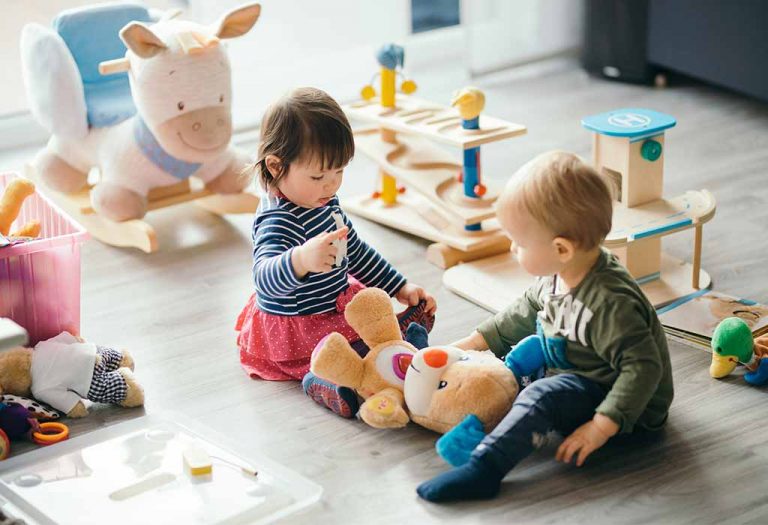
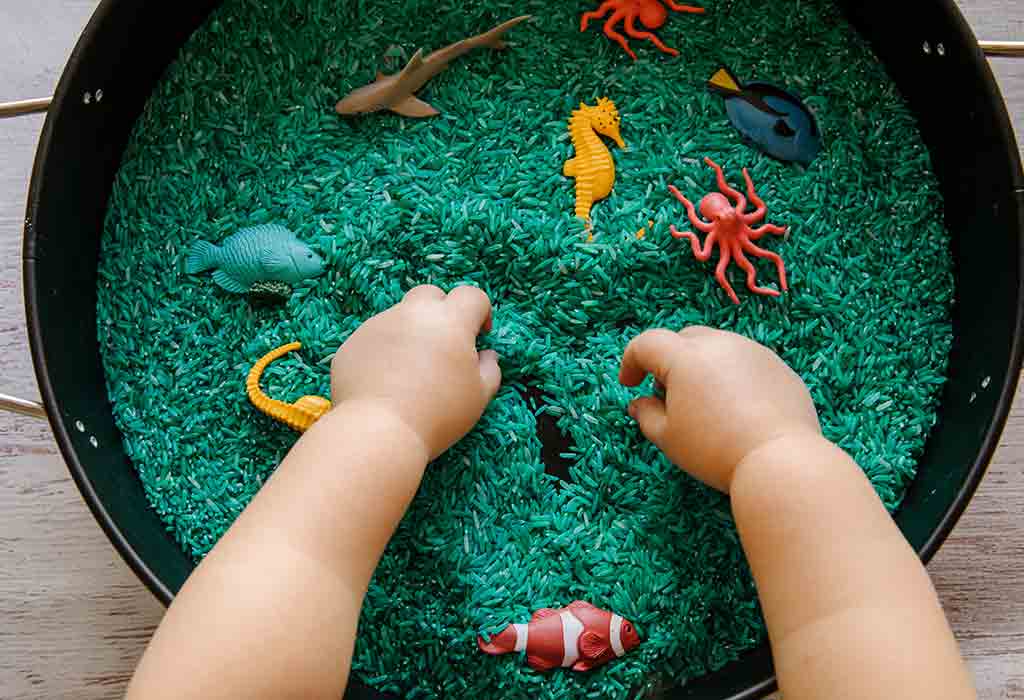
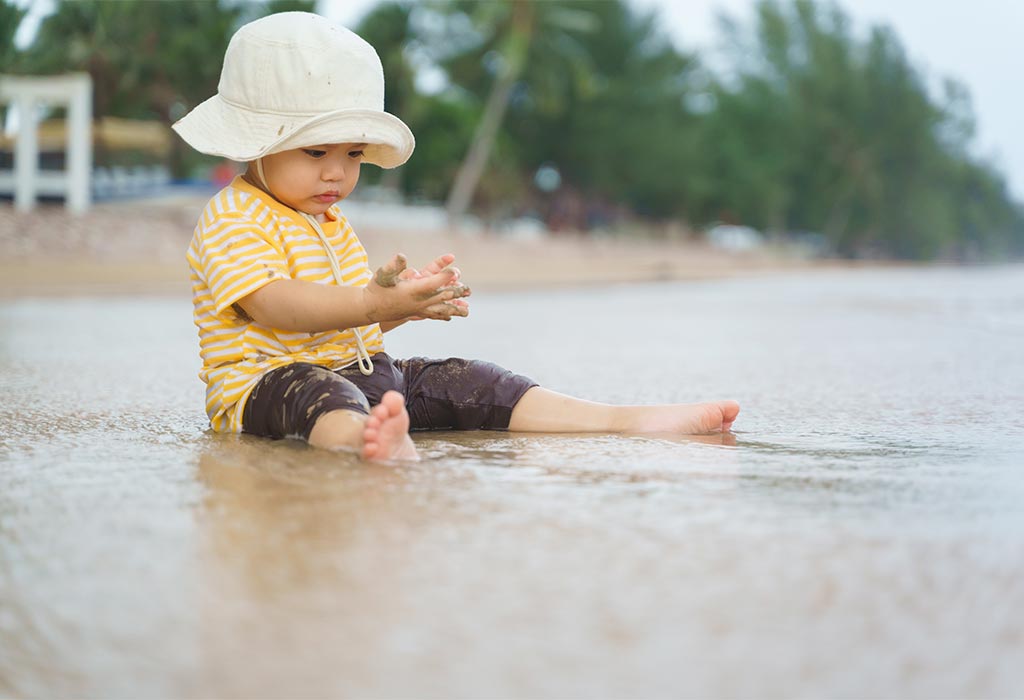
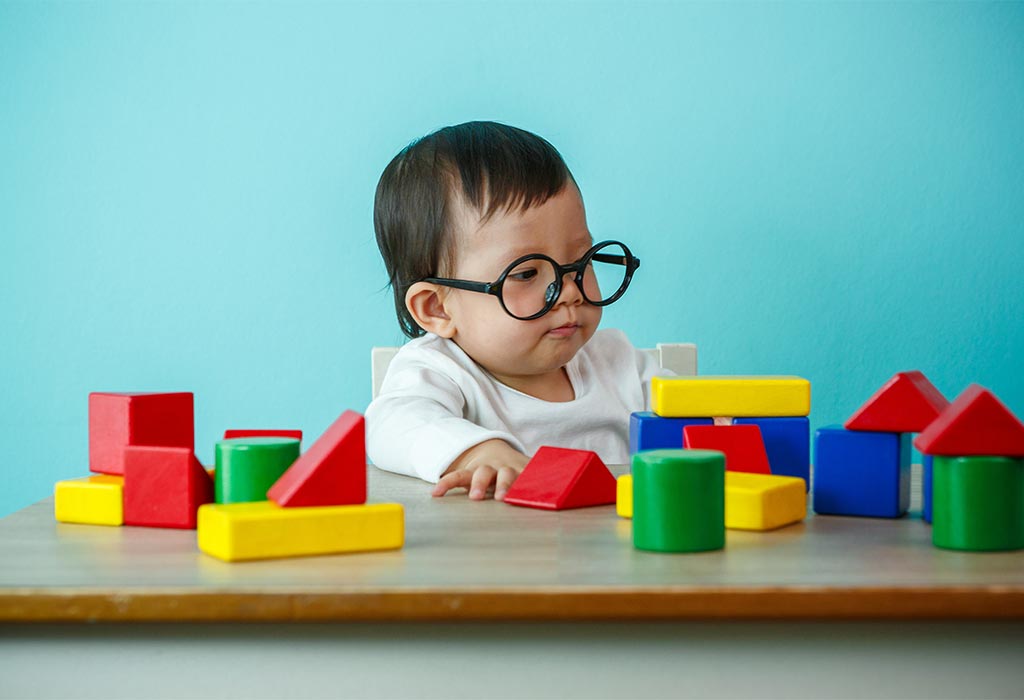
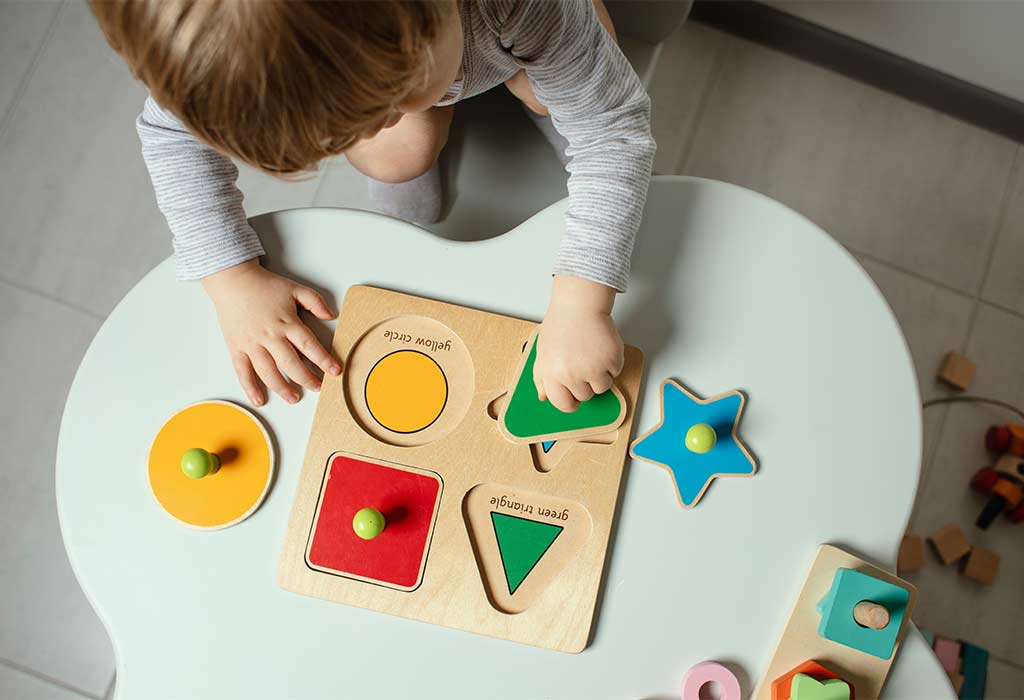
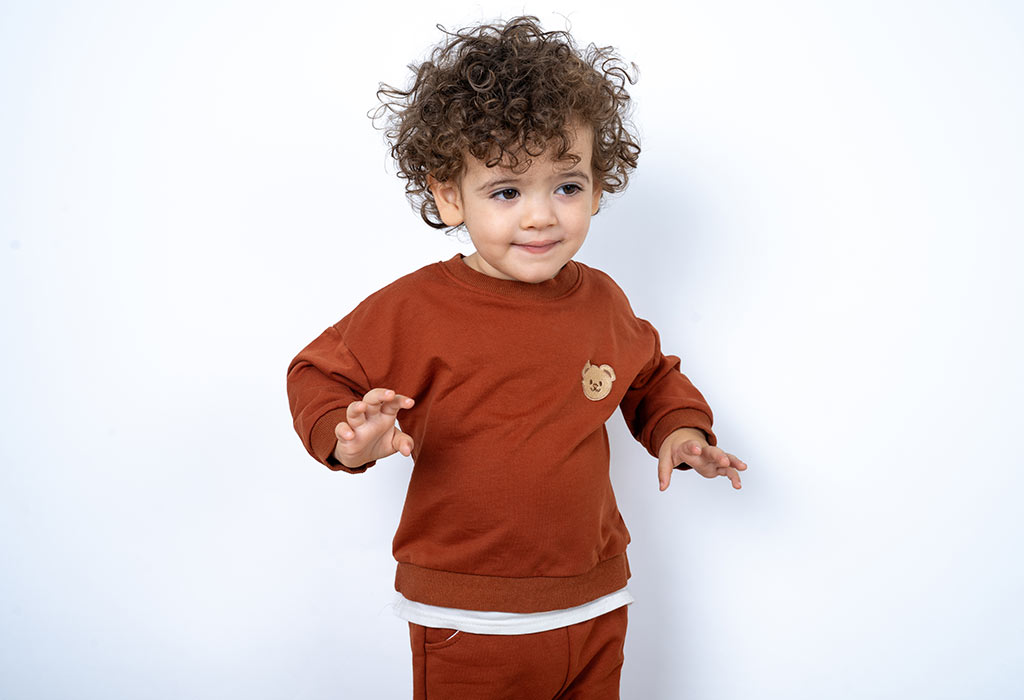

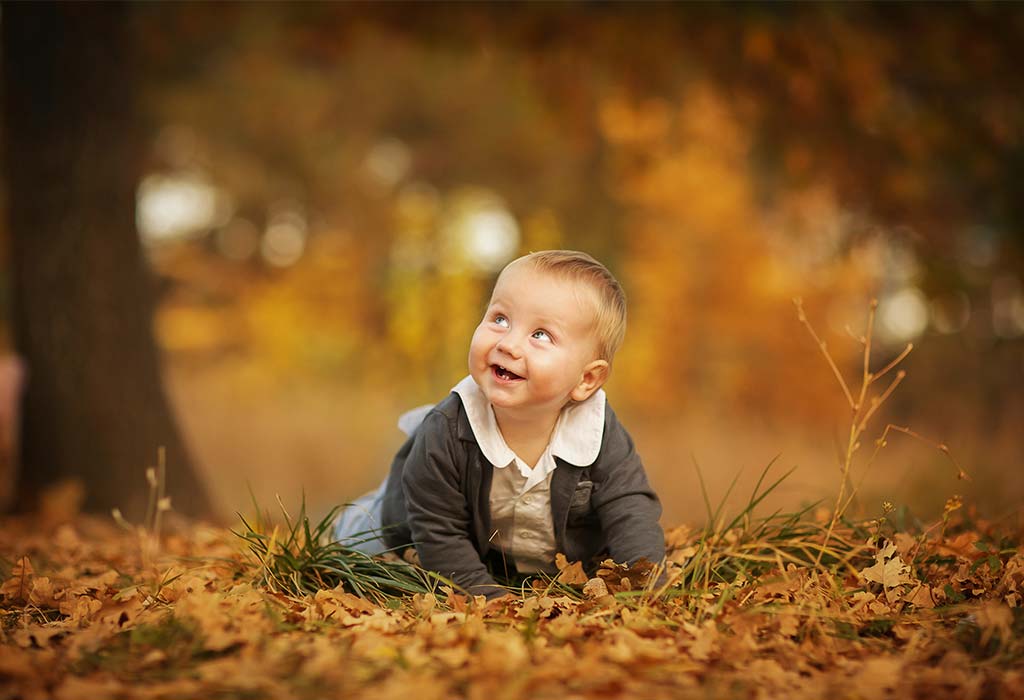
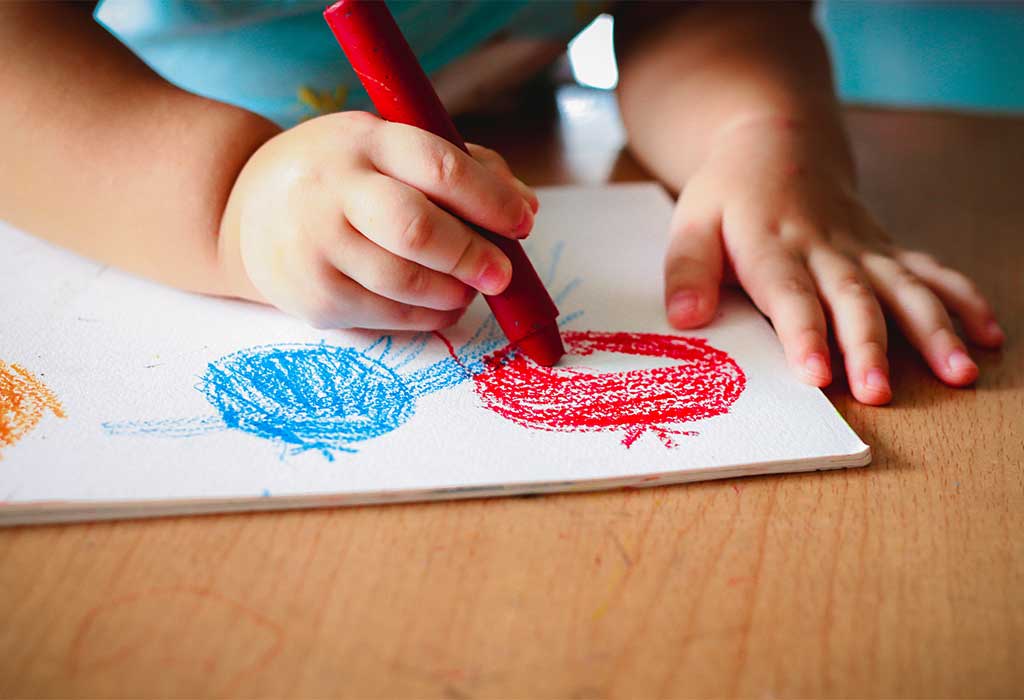
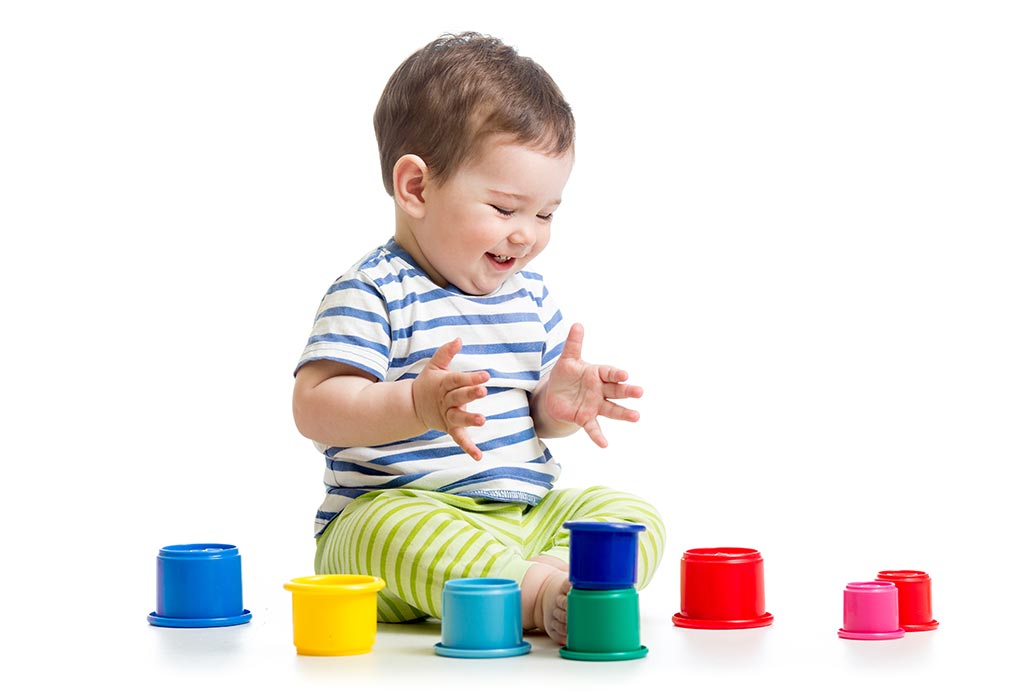

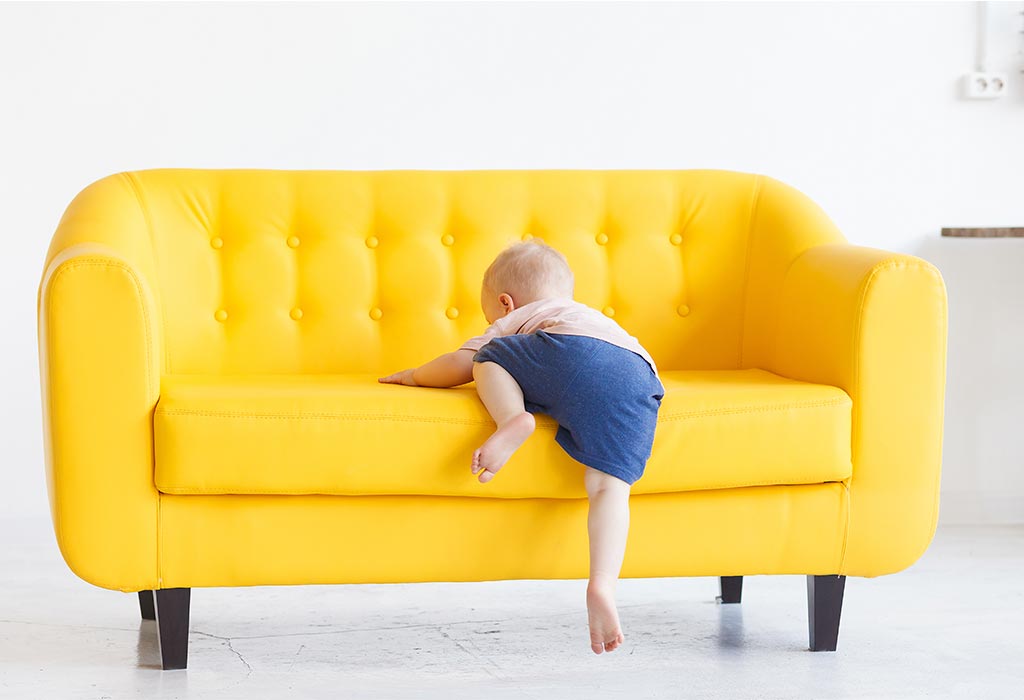
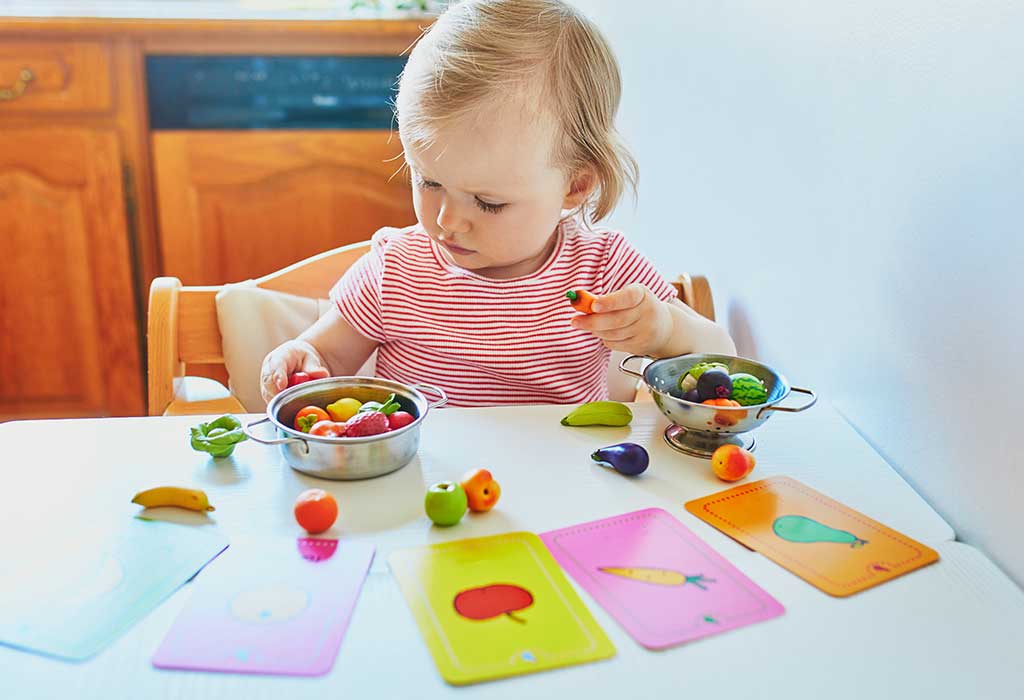
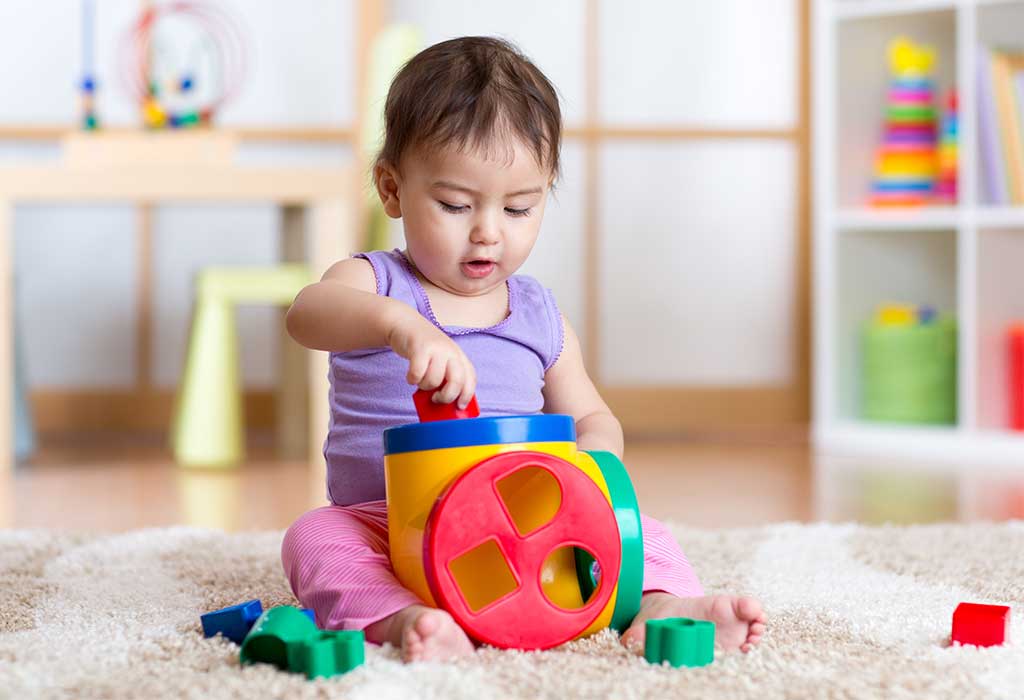
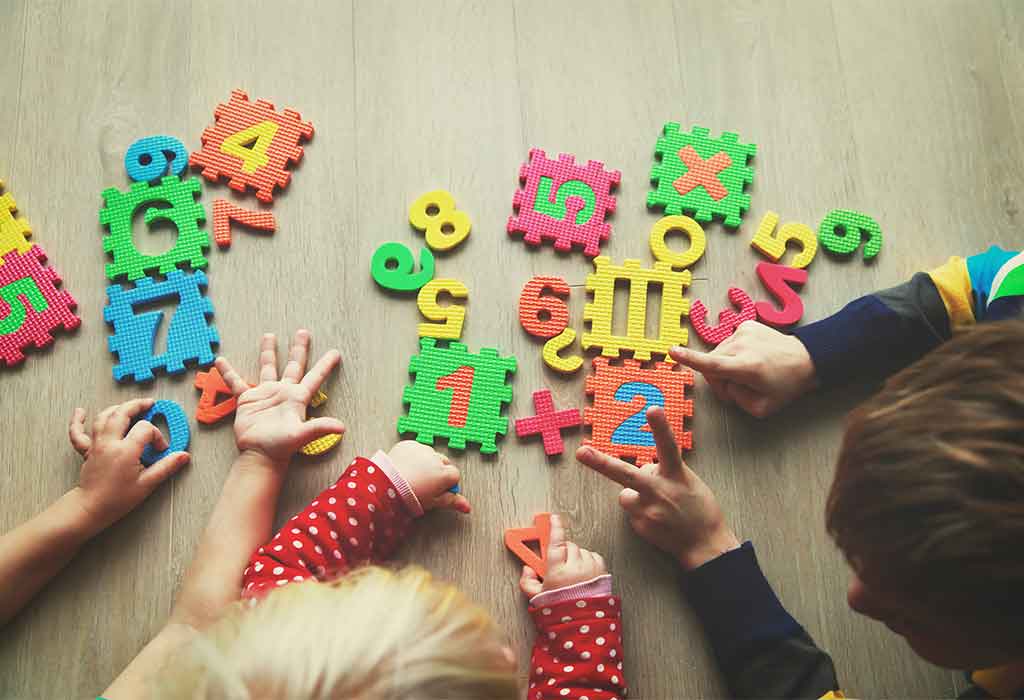
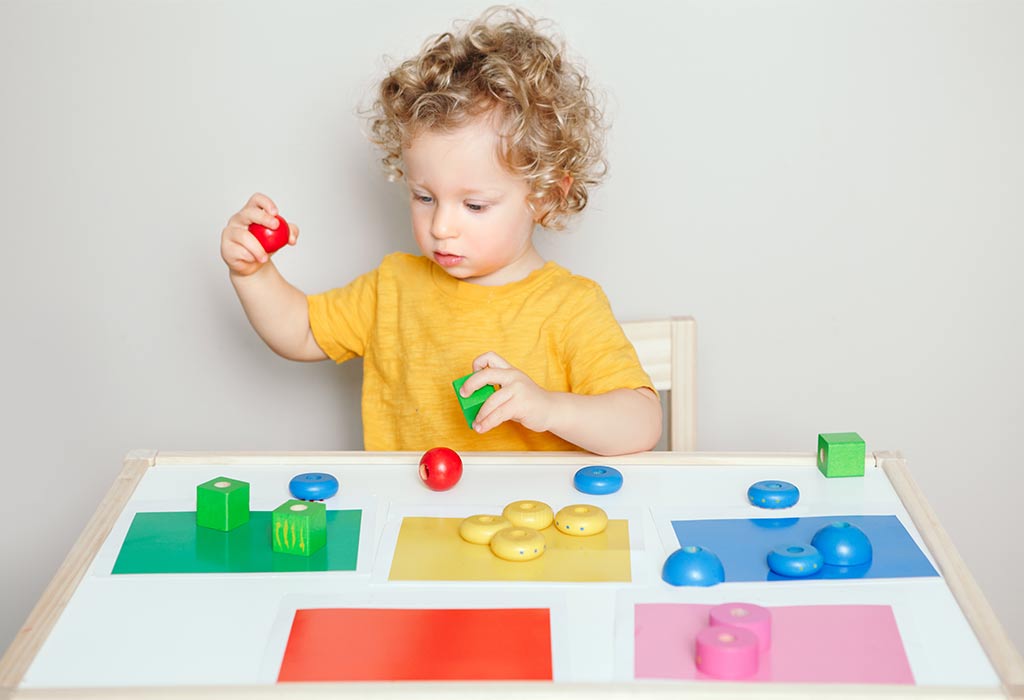
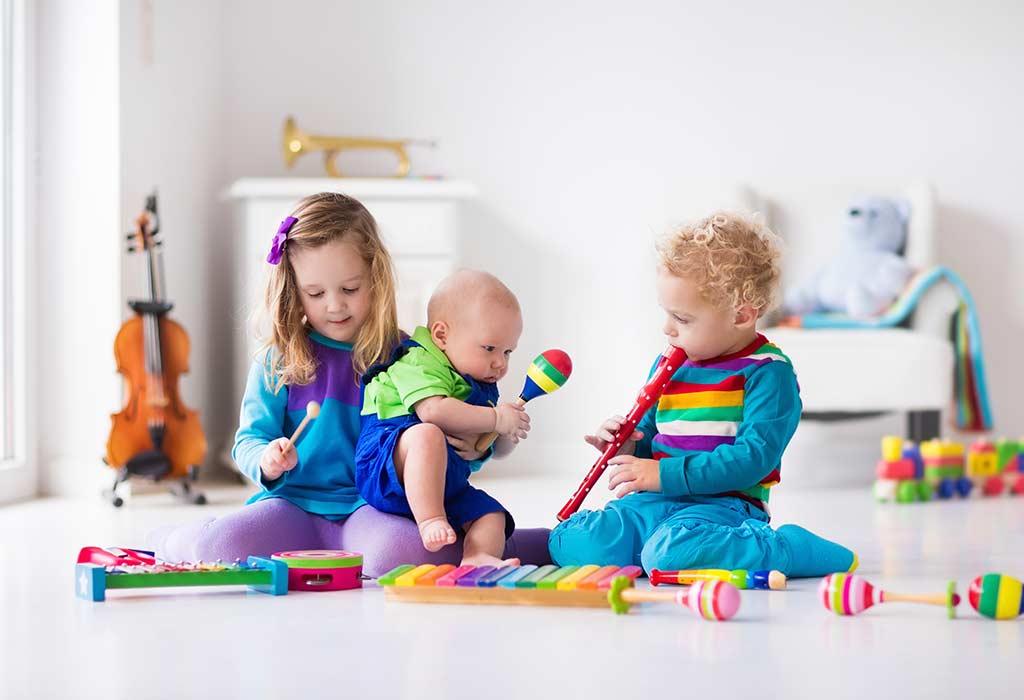
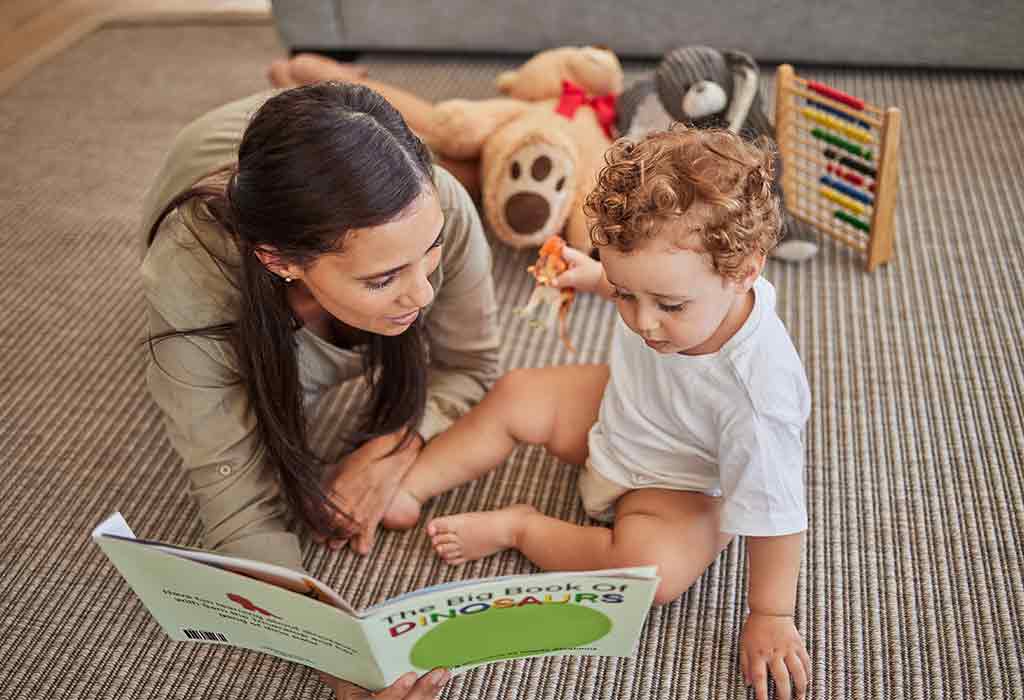
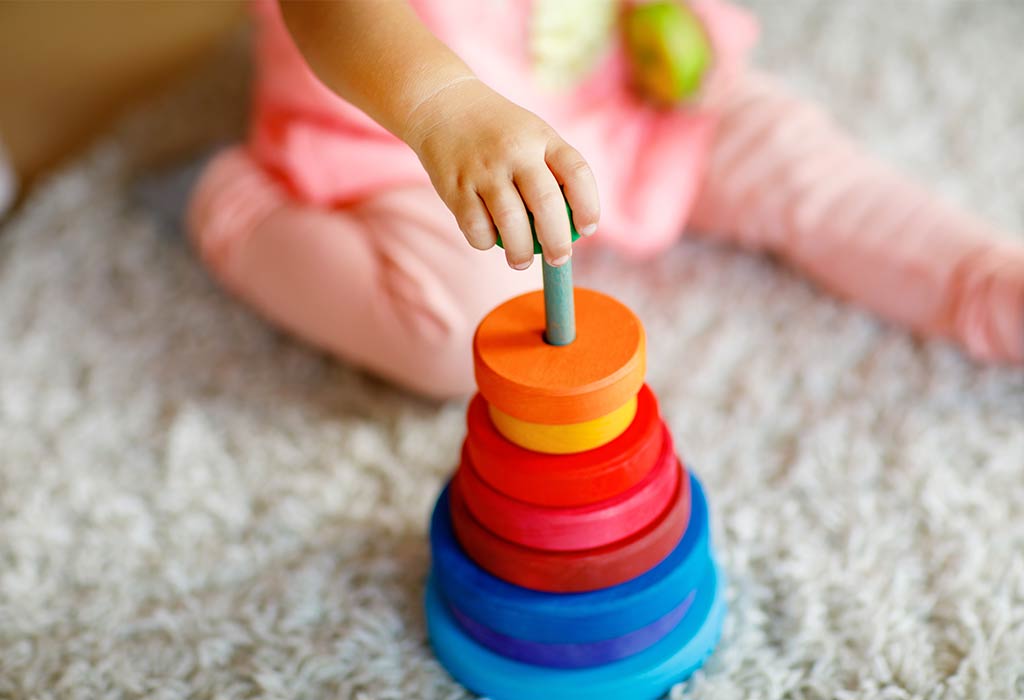

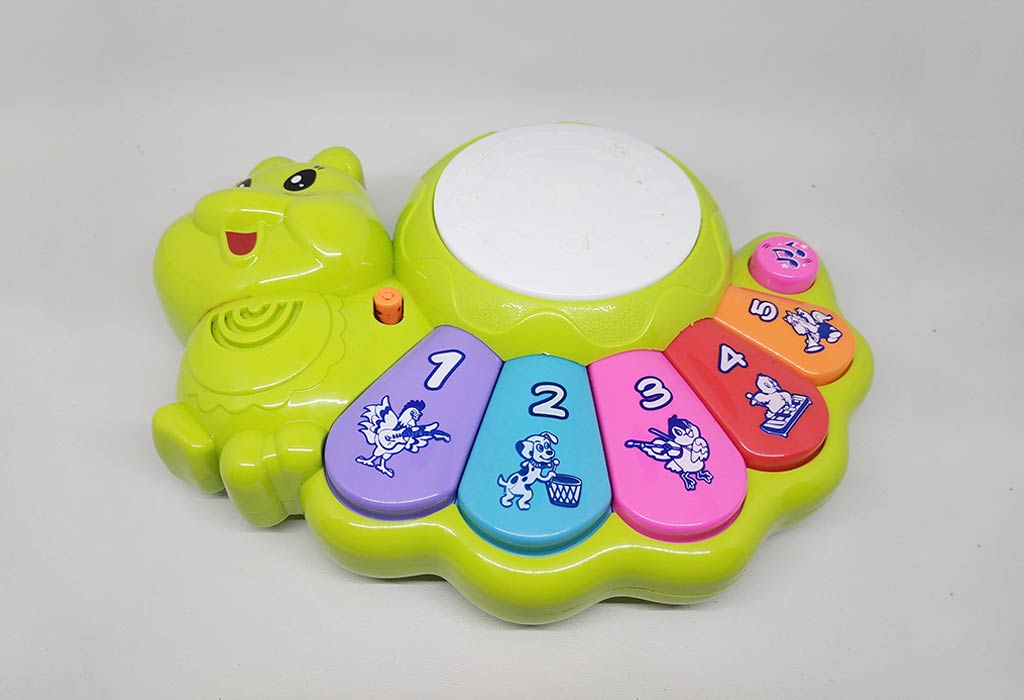
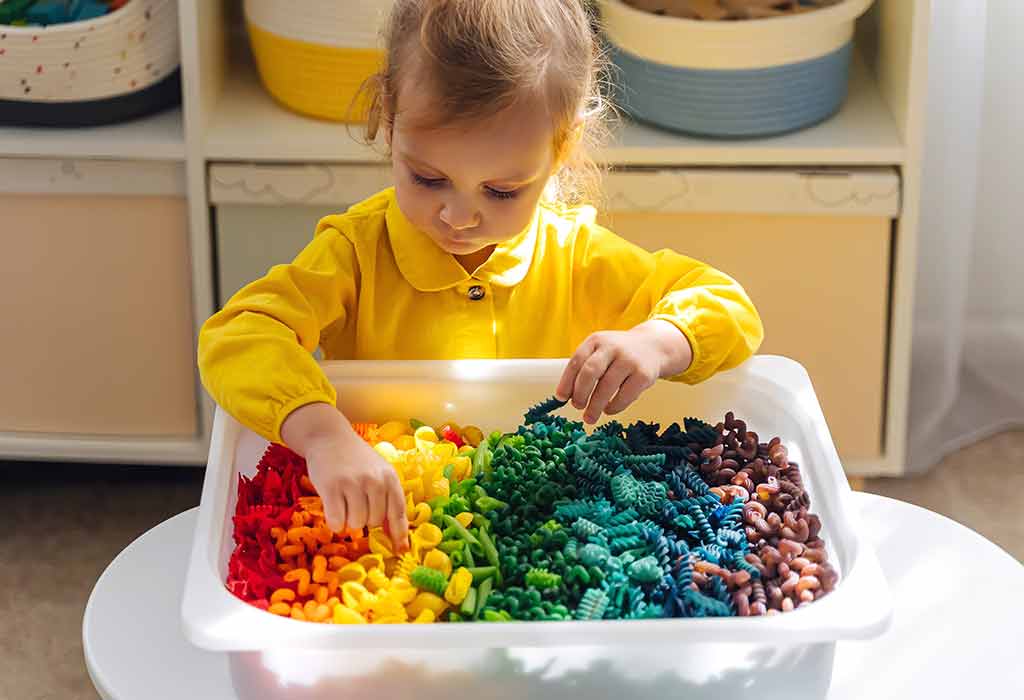
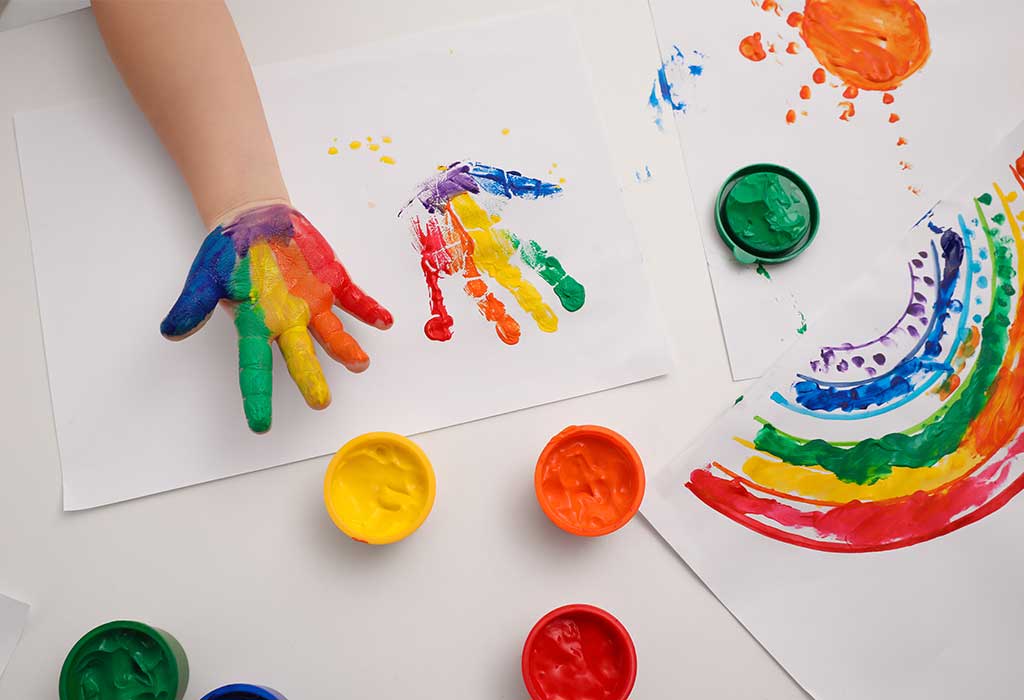

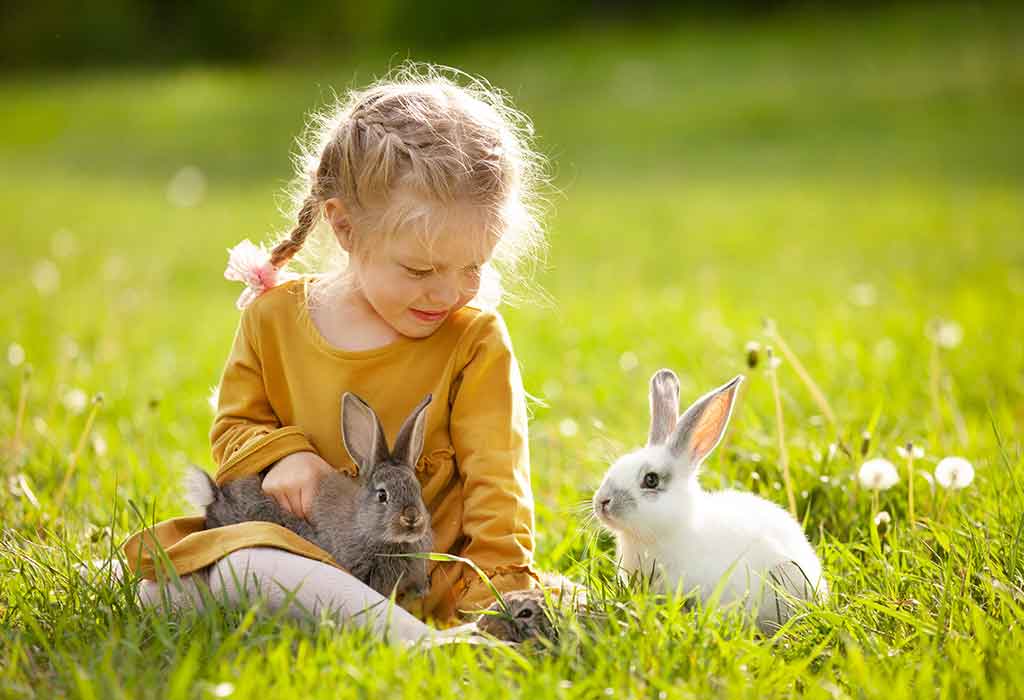
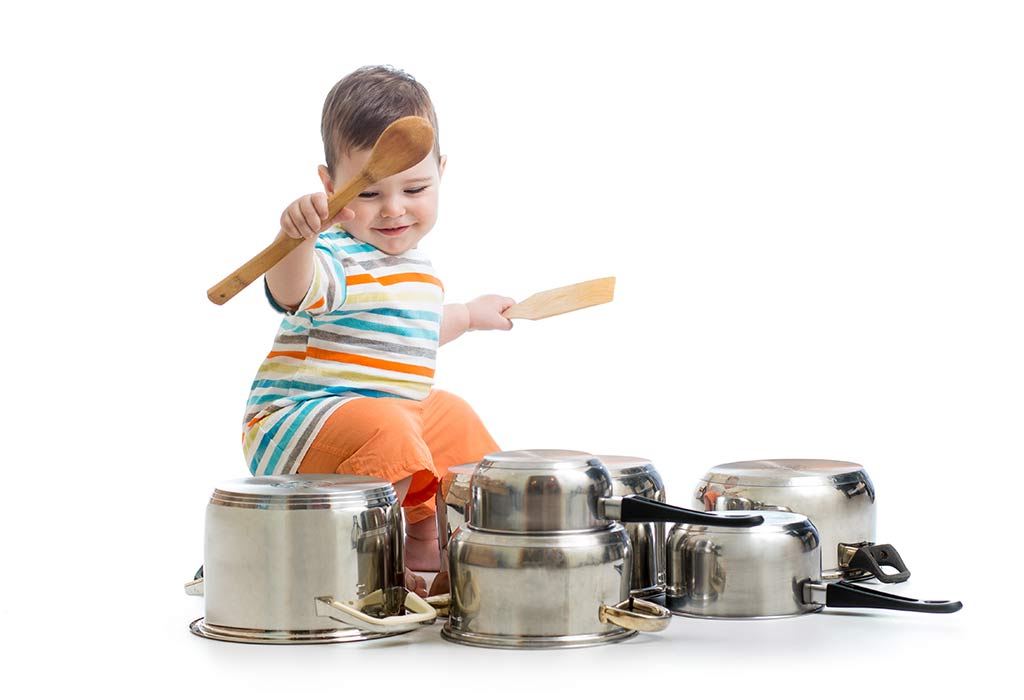
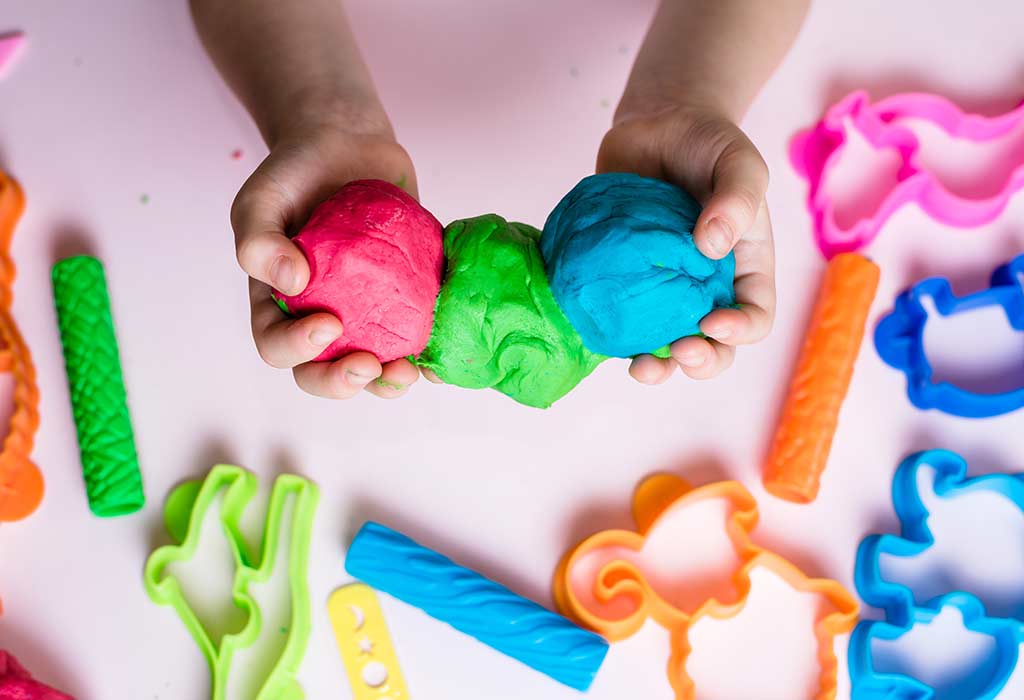
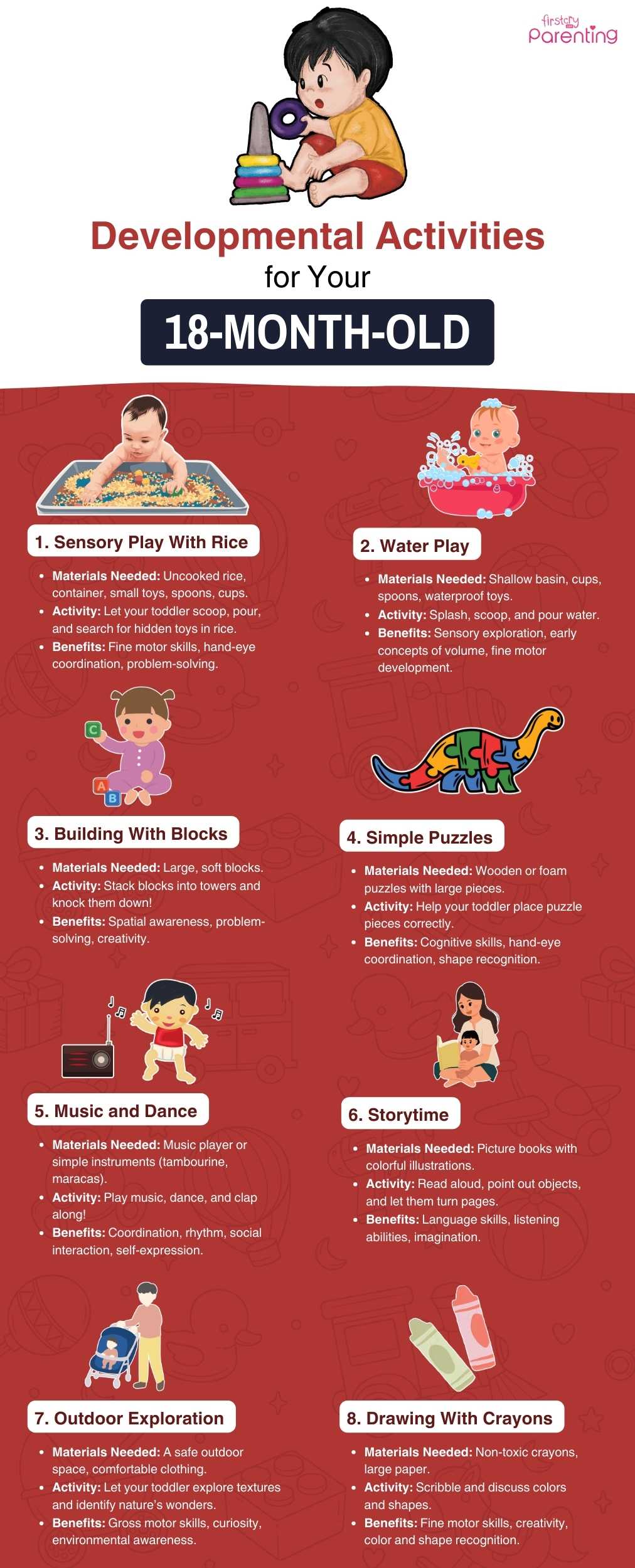

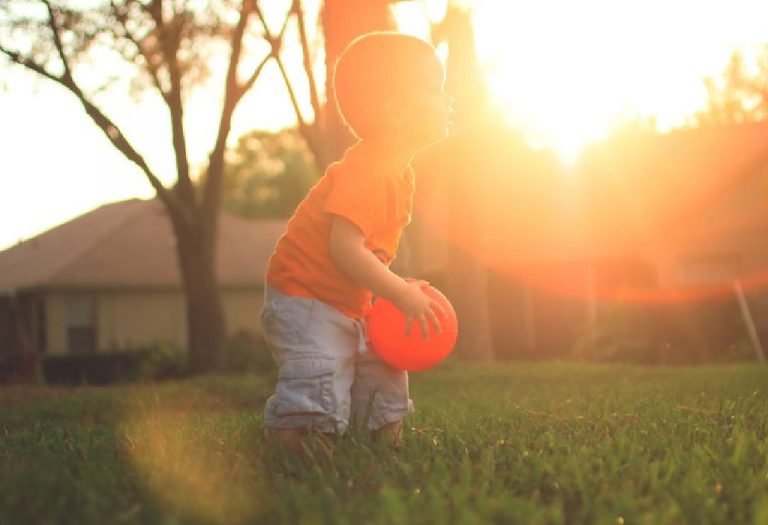
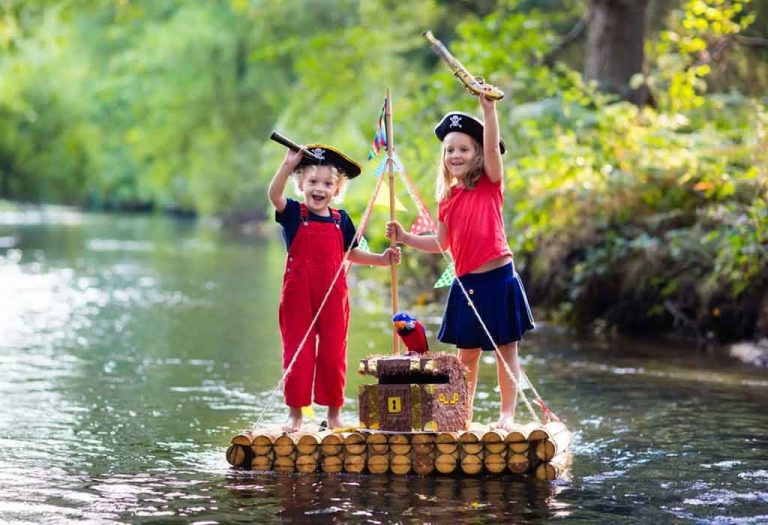
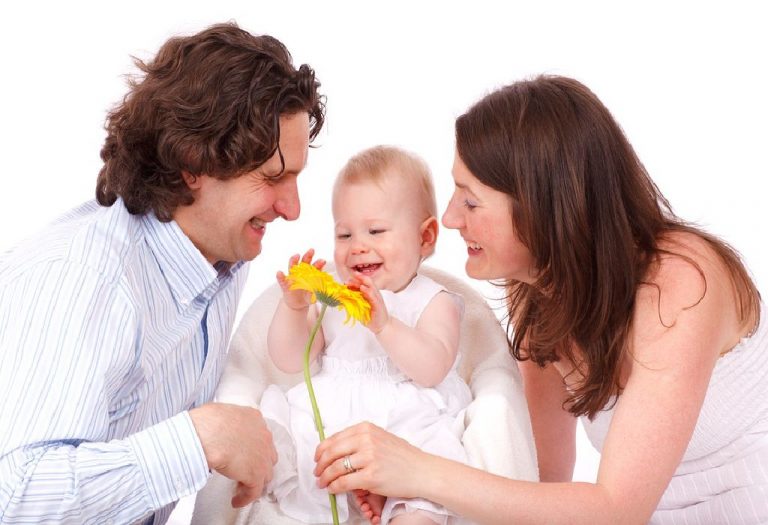
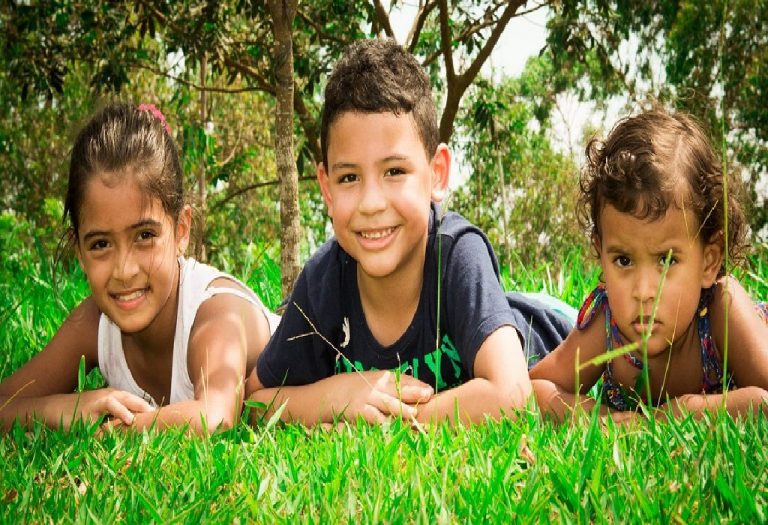
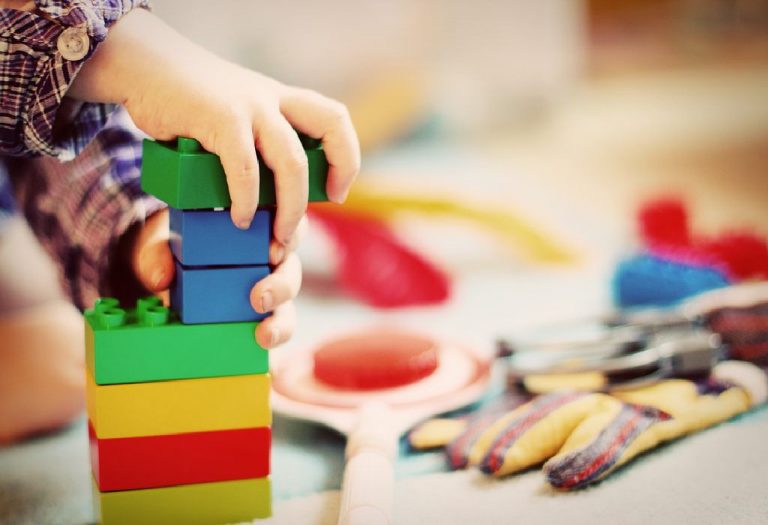

.svg)






